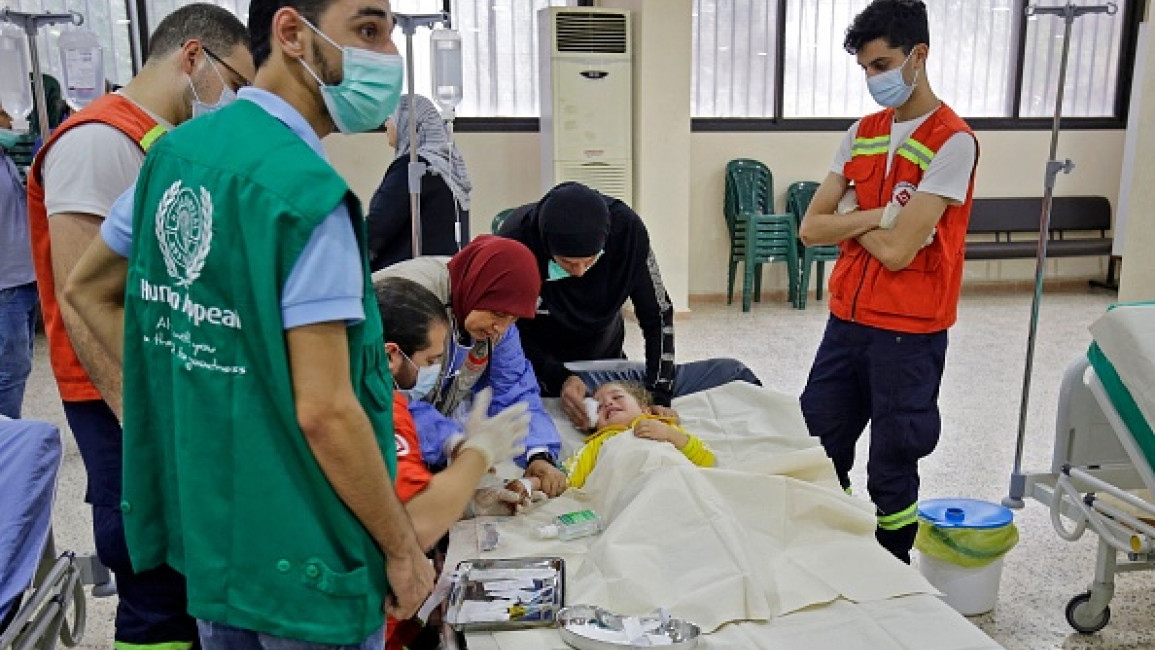Lebanon launches 'door-to-door' cholera vaccine campaign
Lebanon's Ministry of Health will launch a door-to-door cholera vaccination program in priority areas on Saturday, a ministry official told The New Arab.
Six hundred thousand oral vaccines will be given over the next three weeks in the northern governorate of Akkar, the Bekaa and central Bekaa valley, the ministry official said.
They added that medical teams will go "door-to-door" in residential areas and informal settlements, as well as set up in primary health care centres to distribute vaccines.
The doses, donated by the World Health Organisation (WHO), will aim to provide 80 per cent coverage in the target areas.
Lebanon was previously given 13,440 vaccines by French pharmaceutical company Sanofi, which it used for healthcare workers and prisons with populations over 500 people.
The vaccination campaign comes as Lebanon races to contain a cholera outbreak, with over 2,500 cases and 18 deaths so far. The water-borne disease, last seen in the country in 1993, has thrived in areas of Lebanon where infrastructure is substandard.
Cholera has spread particularly in Syrian refugee settlements, where informal housing and lack of access to clean water create sanitation concerns. The disease, spread by water contaminated by human faeces, causes severe dehydration and can be deadly if medical care is not quickly provided.
Saturday's vaccination campaign is the first phase of the ministry's vaccination plan, with the following phases still being planned.
"Our focus is on mobilisation and awareness about the vaccine. We are doing mobilisation with municipalities, governors and all stakeholders," Farah Nasser, the deputy medical coordinator with Doctors Without Borders (MSF) Lebanon, told TNA.
Nasser said that there is awareness within the affected areas of the danger of cholera and that people have been asking medical staff when they will receive vaccines.
She noted that while vaccination in affected areas will help contain the spread of the disease, it is just a 'small part' of preventative measures. The greater challenge will be addressing sanitation and water infrastructure in the country.
Lebanon’s water sector, in particular its wastewater treatment network, suffers from years of under-investment. Many of its wastewater treatment plants are offline, due to a combination of lack of electricity and issues paying staff a livable wage.
As a result, untreated or partially treated sewage is often dumped into rivers and the sea, contaminating water used for drinking and irrigation.
An official from the Ministry of Energy and Water previously told TNA that the ministry needs at least US$4 million a month for fuel and salaries to jump-start the wastewater treatment sector.
Without a proper way to treat and dispose of wastewater and sewage, experts have warned that diseases such as cholera could crop up again in the future.



![Trump's warm greeting to Netanyahu contrasted with Kamala Harris's critical reception [Getty]](/sites/default/files/styles/image_330x185/public/2024-07/GettyImages-2162908988.jpg?h=69f2b9d0&itok=OLc5dL88)